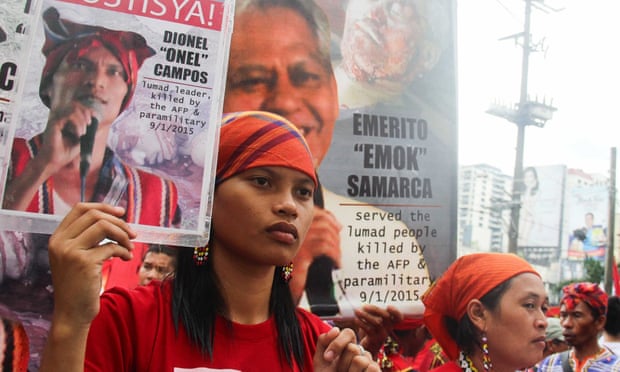Environmental activists are heroes. They are soldiers. But they aren’t at war with anyone or anything other than the corrosion in the human conscience. They often end up a martyr’s fate. The love of life alone won’t do it for them. The love for prime sacrifice uplifts their spirit. The environmental activists are a rare species, anyways.
Everyone can vouch to act bravely, take a stand, show support to a cause. But only a few can truly match the valor and intellectual response that only a true environmental activist can generate. They aren’t random rabble-rousers.
Legendary James Dean’s famous film “Rebel Without A Cause” doesn’t and won’t apply to them.
So it’s even worrisome that the number of environmental activists who end up losing their lives in the line of protecting inarguably the most necessary, cogent part of human freedom and survival: the environment!
But wherever you look today, it can be said with reasonable confidence that there’s no country on the face of the earth where the man versus the environment conflict hasn’t taken center stage.
There are wildfires in Los Angeles to Australia. Mining is eroding land where the indigenous communities stay and have been for the longest possible time. Large-scale infrastructural projects- not to say that those aren’t important- are putting communities off their own living quarters thanks to a sizable chunk of the land being attributed to ‘development.’
The situation seems to have gotten so bad and out of hand, if it might be said, that where the past 15 years stand, then it appears that the murders of environmental activists have, quite simply, doubled.
And it’s not just some random flickering myth. These are official stats being reported by respected publications such as The Guardian. Everyday myriad stories from ground zero emanate and tell us the extent to which the man-to-man conflict over the environment has impacted lives miserably.
Take The Phillippines for example where noted environmental activist Michell Campos has been out, demonstrated on the streets for the longest-possible time opposing a hot-shot mining project in Mindanao that saw her teacher and her father killed in response to their opposition of the same.
Brazil is no stranger to rising deaths of environmental crusaders either. Under the somewhat iron-fisted rule of the newly elected Jair Bolsonaro, it appears that the lives of the indigenous people are at stake following his comments that the indigenous people must adapt to change or be ‘prepared’ to even disappear. What is he hinting at, can he be stopped?
Recently, a study published in Nature Sustainability suggests that a strong correlation between the murders of environmental crusaders and land defenders happens to be ‘the rule of the law.’
Countries that have reported the maximum number of murders are the ones that scored lowest for corruption. These are places where human rights, transparency, legal oversight, and fundamental rights are either challenged or have an appalling place in the democracy for the people.
But at least, at the behest of the live coverages and media reports, one does get to know about the demise of the true meaningful people of our times, right? What about the dictatorial regimes?
It is a matter of fact that many deaths in dictatorial regimes go absolutely unreported because these are places where both media and NGOs are restricted. Think of North Korea. Take China for example.
In lines of the above, a watchdog NGO Global Witness, in its latest annual survey shared that long-term trends pertaining to the murders remain higher, pertaining to the indigenous people.
Recently there was a lot of ruckus in Brazil’s Amapa state following the murder of an indigenous head of the state when dozens of gold miners invaded a remote reserve in the Brazilian Amazon. The mining processes devastate forests, pollute rivers with the incessant quantity of mercury. Any opposition to these rising illegal activities yields bloodshed in the end.
But one has got to ask how can mining at protected indigenous reserves be even allowed? The real shocker comes from Bolsonaro who has encouraged such subversive activities instead of taking the fight to halt illegal mining in his own hands.

Furthermore, a report published in the ScentificAmerican.com stated an alarming factoid:
Researchers performed a geospatial analysis of 683 deaths that occurred between 2014 and 2017 in Brazilian Amazon(in 2018 another 164 environmental defenders lost their lives, according to a report Global Witness published last week). They overlaid the Global Witness data with data pertaining to agricultural harvests, forest cover, mining and dams to see whether the prevalence of these activities correlated with increased murders per capita.”
Above anything, while being an environmental crusader is truly being brave and something to be proud of, it occurs that one may actually be tampering with the unknown, or should we say, the ‘fatal’ especially being one in regions such as Central and South America.


